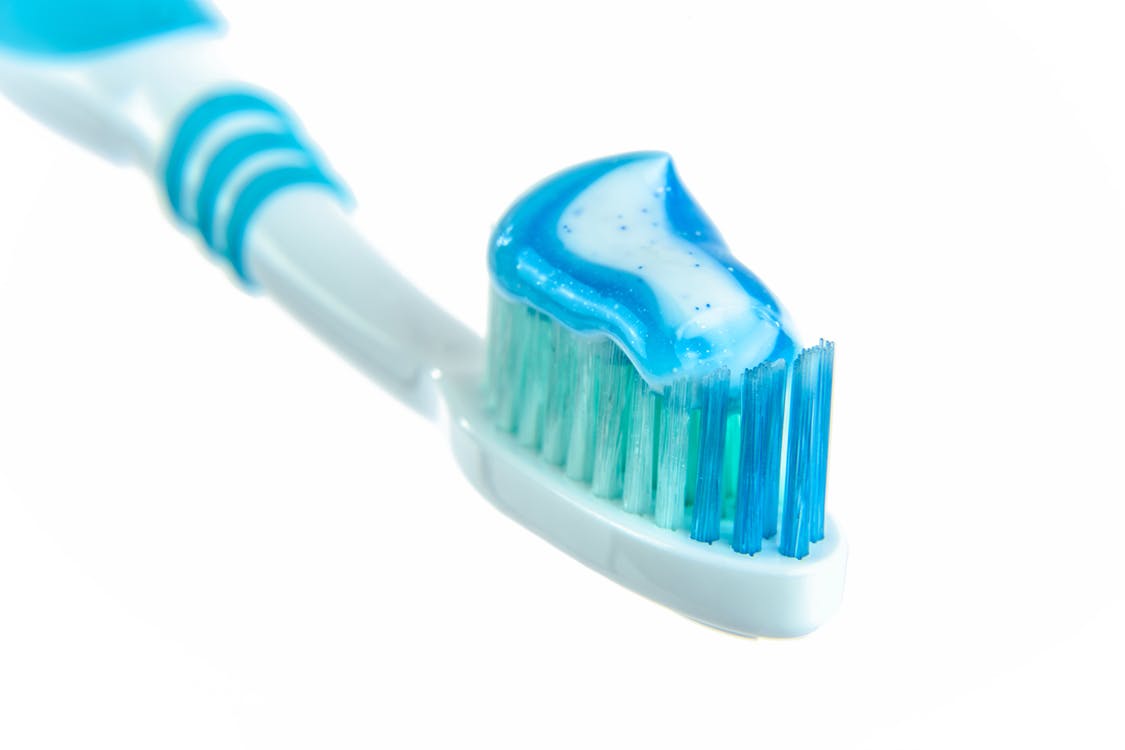Gum disease is often caused by a buildup of plaque or tartar on the teeth. Periodontitis is an advanced form of gum disease, usually resulting from an untreated form of milder gum disease, such as gingivitis. Periodontitis can also be caused by hormone change, certain medications, and smoking, though this is less common.
Periodontitis is a serious condition. It can create abscesses, lesions, and infectious pockets in the gums that cannot be treated through home care. According to the Canadian Dental Association, periodontitis is “one of the main reasons why adults lose their teeth.”
These warning signs can also be symptoms of gingivitis, but, if untreated, they drastically increase your risk of periodontitis.
Change in Color
Healthy gums are pink and tight on the teeth. Gingivitis, or other mild infections, can make your gums red and irritated. This is a symptom of gum disease even without tenderness, swelling, or pain.
Advanced gum disease and periodontitis can produce gums that deepen in color to purple. Gums will also look shiny. Seek professional help when you notice a significant color change.
Swelling or Recession
Gingivitis and periodontitis can cause the gums to swell or to recede. You will usually be able to tell if your gums are swollen simply by appearance, but you may also notice it during your oral hygiene routine. The space between your teeth will likely feel shallower and will be more sensitive than usual if your gums are swollen.
Receding gums will produce the sense that the space between your teeth has deepened. Recession will also likely be visible; you may start to see the roots of your teeth.
Both swelling and recession may be caused by tobacco use, lip or tongue piercings irritating the gums, genetics, or other factors, but you will want to discuss this concern with a dental professional such as those at Williams Landing Dental Clinic.
Bleeding
Many people have gums that are sensitive enough to bleed during a routine oral examination. This does not necessarily indicate periodontitis. And, if your gums are infected, there’s no better place for you to be than a dentist’s chair.
However, if your gums bleed after regular home brushing or flossing, or if they continue bleeding for longer than is normal, this can point to a more serious problem.
Tenderness or Pain
Pain or sensitivity in the gums is also a symptom of periodontitis. This will likely be noticed during your everyday oral hygiene routines, as well.
However, if the pain is in a locale other than your gums, such as a specific tooth or your jaw, it is likely the symptom of another dental issue, such as a cracked tooth. You will want to seek the attention of a professional for an evaluation.
Movement
If a hygienist has probed around the bottoms of your teeth and rattled off a quick series of numbers, you have had the attachment of your teeth checked. Dentists and hygienists use a thin probe with measuring markers to determine the level of attachment your teeth have to bone, in millimeters.
Advanced gum disease weakens this attachment and can, eventually, result in tooth loss. If your teeth move during normal activities, such as biting down, brushing, or flossing, you will want to see a professional.
Prevention
As with almost any dental ailment, good oral hygiene is your best defense. You should consider taking the following preventative measures:
-
Brush thoroughly twice a day
-
Floss daily
-
Visit a dentist or hygienist every six months
-
Use anti-bacterial mouthwashes
-
Use anti-cavity or anti-gingivitis toothpaste that contains fluoride or hydrogen peroxide
-
Eat healthfully
-
Avoid tobacco chewing or smoking
Whether you are located in Vancouver or Burlington, periodontics specialists are available to help you determine the best way to maintain and improve your oral health. If you experience any of these symptoms, you will want to make an appointment with your local dental provider for an exam.
Don’t wait for things to get serious! Your teeth are one of the few outfits you wear every single day, keep your smile healthy and beautiful to decrease your risk of developing periodontitis.






